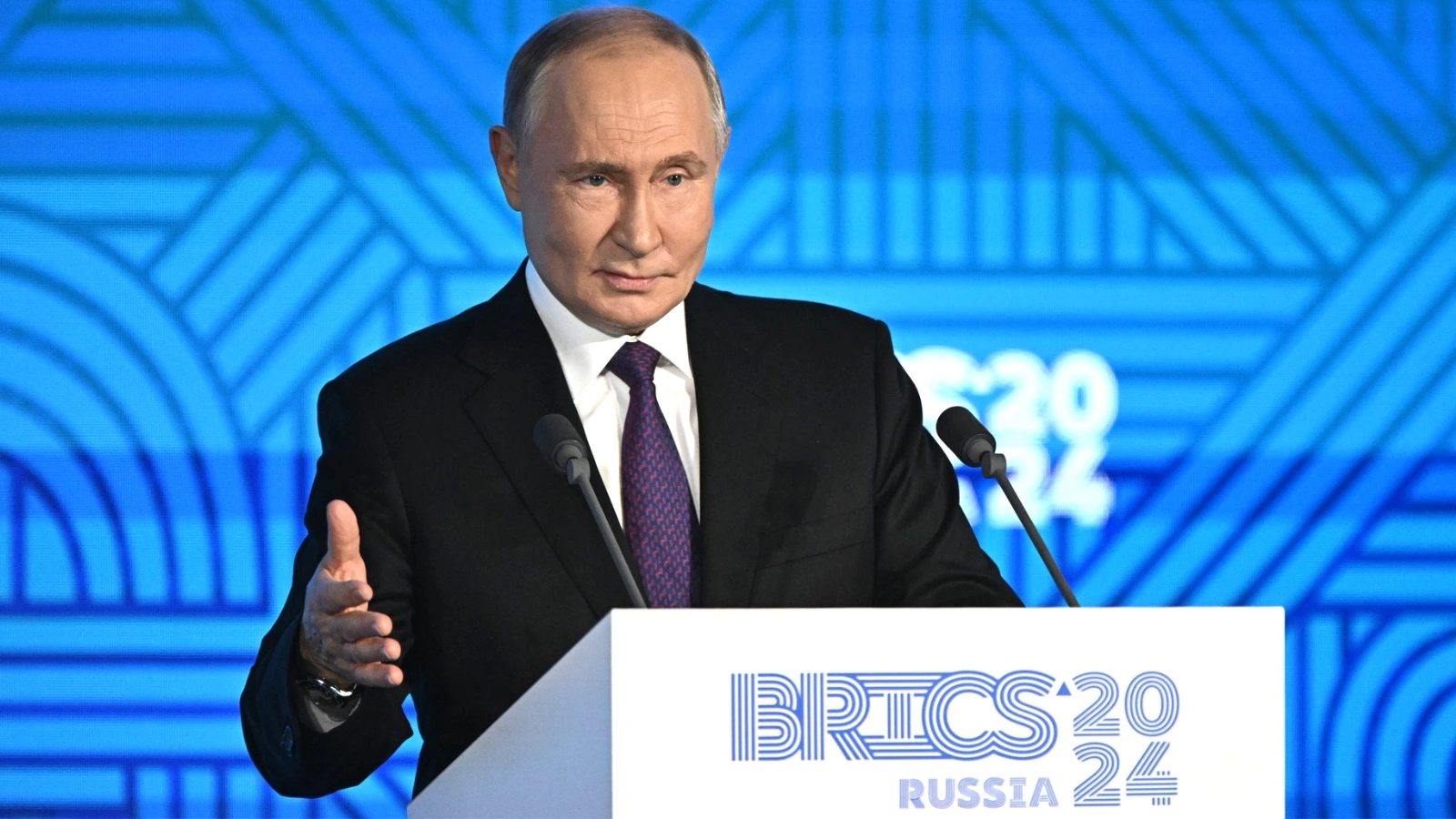Russian President Vladimir Putin has predicted that the BRICS nations will see higher economic growth than the global average by the end of 2024. Speaking at a plenary session of the BRICS Business Forum in Moscow, Putin stated that the BRICS nations’ Gross Domestic Product (GDP) growth rate is expected to reach 4% by the fourth quarter of 2024, outpacing the global average of 3.2%.
The forum, held just before the upcoming BRICS Summit in Kazan on October 22-24, gathered business representatives and delegates from various nations. The summit will be the first to include new BRICS members such as Egypt, Iran, the United Arab Emirates, Saudi Arabia, and Ethiopia, who officially joined the association on January 1, 2024. These countries now sit alongside the original five BRICS members—Brazil, Russia, India, China, and South Africa.
BRICS as Global Economic Drivers
During his address, Putin emphasized the pivotal role BRICS nations play in the global economy. He noted that the countries within the association are the primary drivers of global economic growth and will continue to generate the largest increases in global GDP in the years ahead.
“In the foreseeable future, BRICS will generate the main increase in global GDP,” Putin declared, positioning the group as a major engine for economic development worldwide.
Putin also highlighted Russia’s commitment, as the current chair of BRICS, to facilitating the integration of the new members into all BRICS cooperation mechanisms. He stressed that BRICS’ growing influence is a significant development for the global economy, especially as the group expands to include more nations from different regions.
Key Initiatives and BRICS-Pay
Putin used the platform to discuss some of Russia’s initiatives aimed at strengthening economic cooperation among BRICS nations. One of the key projects highlighted was the creation of a joint cross-border payments system known as BRICS-Pay, which is designed to enhance trade and financial transactions between member nations. The system is expected to reduce dependency on Western-dominated financial infrastructures, offering BRICS nations a more independent and efficient way of conducting trade.
Another major initiative is the establishment of a BRICS reinsurance company, aimed at providing financial security to businesses within the bloc and promoting intra-BRICS investments and trade.
BRICS New Development Bank
A central element of the BRICS economic strategy is the BRICS New Development Bank (NDB). Putin emphasized the importance of the NDB as an alternative to Western-led financial institutions in providing funding and supporting development in the Global South and BRICS nations. He pledged that Russia would increase the NDB’s capacity to further strengthen its role in funding key projects across BRICS and other developing nations.
The bank, according to Putin, is positioned to challenge Western financial models by supporting projects that foster economic independence and growth in the Global South, a region that is often underserved by traditional international financial institutions.
Strengthening Economic Partnerships
Putin also underscored the importance of close economic collaboration between BRICS nations, stating that “joint work brings tangible results.” He noted that the continued expansion of the bloc and the deepening of partnerships would contribute to the overall prosperity of member nations.
The upcoming BRICS Summit in Kazan will further outline the association’s strategic direction and its increasing influence on the global stage, as it seeks to provide alternatives to the traditional Western economic order and foster a more multipolar world.
In conclusion, with expanded membership and new economic initiatives, BRICS is positioning itself to be a driving force behind global economic growth, setting the stage for what could be a transformative year in 2024.
